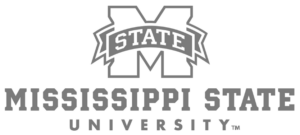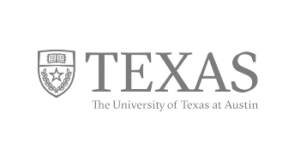I-Corps supports national innovation ecosystem, helps take scientific discovery to the marketplace
September 27, 2016
The National Science Foundation (NSF) has awarded five new grants to teach entrepreneurship and to support research and innovation at regional hubs across the United States under its Innovation Corps (I-Corps™) program.
The innovation hubs, known as I-Corps nodes, provide the research infrastructure and training to help researchers transition fundamental science and engineering discoveries to the marketplace. They also support a number of I-Corps sites across the country and deliver a seven-week I-Corps curriculum to the I-Corps teams.
Ranging between $3.4 million and $4.2 million, this year’s awards will establish one new node and further fund four existing nodes over a five-year period. These include:
- New York area node with Cornell University; Rochester Institute of Technology; and the University of Rochester. [NEW]
- Bay Area node with University of California, Berkeley; the University of California, San Francisco; and Stanford University.
- DC-area node with University of Maryland, College Park; George Washington University; Virginia Tech; and Johns Hopkins University.
- Midwest node with University of Michigan; University of Illinois at Urbana-Champaign; and Purdue University.
- South node with Georgia Institute of Technology; the University of Alabama at Tuscaloosa; the University of Alabama at Birmingham; and the University of Tennessee Knoxville.
There are a total of eight I-Corps nodes.
“I-Corps nodes support the national innovation ecosystem and help some of America’s brightest researchers test the commercial potential of their discoveries,” said Grace Wang, acting assistant director for NSF’s Engineering Directorate. “We are thrilled to support these regional innovation hotbeds, which will help to foster local economic development and expand access to more researchers of all different backgrounds who seek entrepreneurship training.”
National innovation network
In 2011, NSF created the I-Corps program to train NSF-funded researchers to evaluate their scientific discoveries for commercial potential.
Since then, more than 800 teams have completed the NSF curriculum from 192 universities in 44 states. This resulted in the creation of more than 320 companies that have collectively raised more than $83 million in follow-on funding.
“Through I-Corps, public and private partners are working cooperatively to build, use and sustain a national innovation ecosystem, further enhancing the development of technologies, products and processes that benefit society,” said Jim Kurose, assistant director of the Computer & Information Science & Engineering Directorate at NSF. “The interconnected I-Corps nodes offer a rich diversity of resources, tools, programs and capabilities for teaching and enhancing entrepreneurship.”
NSF last announced new nodes in 2014. In Fiscal Year 2016, NSF awarded $300,000 over three years to each of the 15 new I-Corps sites across the country.
NSF also collaborates with other federal agencies — including the National Institutes of Health, the Department of Energy’s Advanced Research Projects Agency, the Department of Defense and more — to offer I-Corps training to their grantees.
About NSF I-Corps:
The NSF I-Corps program, a public-private partnership program established in 2011, connects NSF-funded scientific research with the technological, entrepreneurial and business communities to help create a stronger national ecosystem for innovation that couples scientific discovery with technology development and societal needs. Visit the NSF’s I-Corps website for more information.
-NSF-
Media Contacts
Sarah Bates, NSF, (703) 292-7738, sabates@nsf.gov
Program Contacts
Lydia McClure, NSF, (703) 292-8798, lmcclure@nsf.gov
Related Websites
NSF Innovation Corps (I-Corps) homepage: https://www.nsf.gov/news/special_reports/i-corps/
The National Science Foundation (NSF) is an independent federal agency that supports fundamental research and education across all fields of science and engineering. In fiscal year (FY) 2016, its budget is $7.5 billion. NSF funds reach all 50 states through grants to nearly 2,000 colleges, universities and other institutions. Each year, NSF receives more than 48,000 competitive proposals for funding and makes about 12,000 new funding awards. NSF also awards about $626 million in professional and service contracts yearly.








